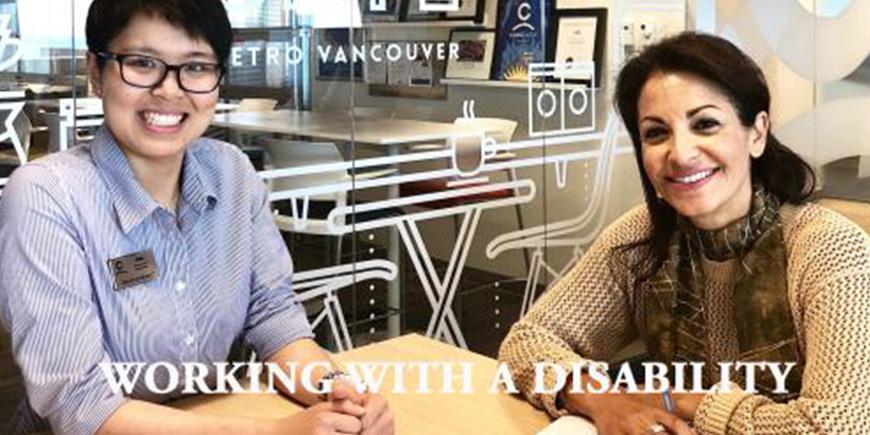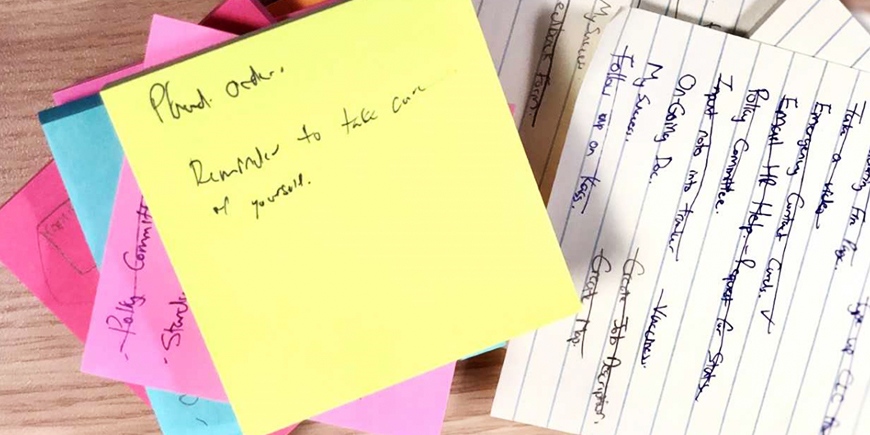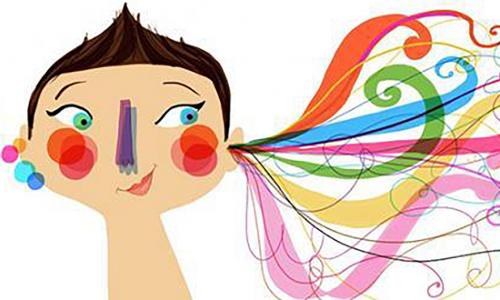
Going on your first co-op term isn’t easy. Not only are you launched into a new environment with new people and tasks but you are also constantly learning new things along the way. However, for students with disabilities, transitioning from the classroom to the workplace can be even more difficult. Fortunately, there are ways to cope with this huge change. Through my co-op term, I used these strategies to help me make the most out of my co-op experience.
Support
Support from your manager is very important in making your co-op experience amazing. While it may be nerve wracking to tell your manager about your disability, it can be absolutely rewarding to disclose. Not only will they be able to make accommodations for you, you can also help them learn about your disability and give them experience in working with staff with disabilities.

Working in an inclusive workplace, I know there is nothing to be afraid of when disclosing my disability to my manager. After all, my manager IS the manager of Disability, Safety, and Wellness. Nevertheless, the conversation was not easy. Early in the semester, I told her about my disability. Instead of being met with stigma or skepticism, she was there to support me in any way possible to help manage my disability at work. She was also extremely curious about my disability and wanted to learn about it as we work together throughout the semester.
Now, my manager plays a very important role in my disability management. I can openly ask her if she has noticed anything that needs to be addressed. To help her learn, I would walk her through what I see, hear, or feel in certain situations so she can visualize what someone with the same disability may experience when faced with the same situation. While co-op is meant to be a learning experience for you as a student, it also gives your manager a chance to learn at the same time!

Using Your Strengths
While a disability can be limiting in different aspects of life, sometimes having a disability will give you strengths that no one else will understand or have.I know that I am a very creative person. Since I do not enjoy following strict rules and prescribed methods, I use this creativity at work to dream up new solutions to fix problems or to execute tasks. One of the things I did during my co-op term was creating activities for Mental Illness Awareness Week. Using inspiration from my manager, I helped create Gratitude Walls on every floor of our building to allow our staff to share something they are grateful for to inspire their colleagues. I also used my creativity to help build corporate-wide occupational health & safety training material which will leave a lasting legacy for the years to come.
Adapting to Your Environment
Having a disability doesn’t mean that you cannot work as hard as anyone else. While certain tasks can be more challenging for you than others, you can easily overcome these barriers by finding strategies to make it easier for you. The nature of my disability affects my organization skills and attention, which can make finishing tasks on time very difficult.

Thankfully, because I love what I do, this effect from my disability only affects me minimally at work compared to other aspects in life. Nevertheless, my attention span can drop throughout the day. To help me focus on what is important, I begin each day with a to-do list and use my calendar at work to ensure I go to all of my meetings on time. I also keep at least one notebook beside me at all times to capture anything that comes up during the day. My manager also helps me with this by keeping an ongoing list of tasks/work to do so that I always know what I need to do next. Together, we make sure everything is done before they are due.
Having a disability does not mean you cannot succeed at work, it just means you may need to do things a bit differently to help yourself succeed. No matter what, always remember that it is okay to ask for help. Your manager is there to support you while you learn, and you can also help your manager learn by sharing your unique experience with them.
Beyond the Blog
-
SFU’s Center for Students with Disabilities offers a wide range of services for students of all abilities.












